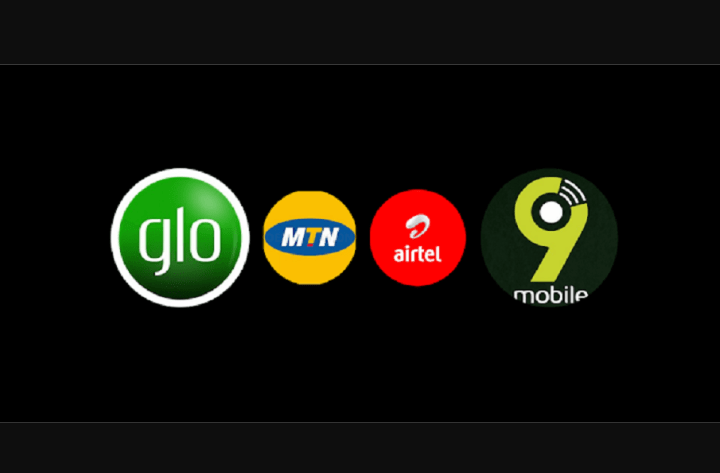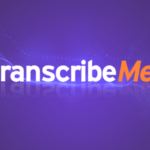Best telecommunication companies in Nigeria that provides services worth your money.
Top 4 telecommunication companies and their services.
These 4 best telecommunication companies in Nigeria is already a sign of how competitive and service-ready they are.
In as much as Nigeria has become the largest telecoms market in Africa, with more than 140m active telecoms subscribers in 2015 From just 4m in 2003. It is imperative to note that this progressive achievement will not have been possible without the adoption of competitive strategies in service rendering among the Four major network provider in Nigeria. These are the best telecommunication companies in Nigeria according to research.
Service offering competition among the major network Providers in Nigeria has been intense, and to be the best, the network operators adopt different strategies to ensure that their brands are recognized as the best, most affordable and fastest in the industry, in terms of internet connectivity and voice calls quality.
Mobile network providers have continued to use innovative plans such as data plans and many more affordable products to have a competitive edge over and above other mobile service providers. The competition has brought about varieties of consumer products that are more affordable, and that can allow customers to make their choices.
HISTORY OF TELECOMMUNICATION IN NIGERIA
It all began in 1886 when a cable connection was laid between Lagos and London by the Colonial administration. The introduction of telephone services in the country was not induced to enhance economic growths and activities; rather, it was intentionally developed as a tool for colonial subjugation.
The actual commercialization of telecommunication services started between 1960 and 1985 when the old department of post and telecommunication (P&T) under the Ministry of Communication Limited (N.E.T) was created to take care of external telecommunication services while the old P & T handled internal network. By January 1985, the erstwhile (P&T) divisions merged with N.E.T to form Nigeria telecommunication limited (NITEL) a government-owned Limited Liability Company.
The purpose of establishing NITEL was to harmonize the planning and coordination of the internal and external communication service, rationalize investments in telecommunication development and provide accessible, efficient, and affordable services.
NITEL, the only national monopoly operator in the sector, was witnessed with epileptic service and bad leadership which made telephone then to be unreliable, congested, expensive, and customer unfriendly.
In between the years, 1992 to 1999 were seen as the partial liberalization era, after when the government embarked on market-orientated, partially liberalizing the Nigeria telecommunication sector via NCC Decree 75 of 1992. The reforms include separation of the policy-making body from industry regulators and networks operators/ service providers and licensing of network operator/ service providers which began in 1996.
TELECOMMUNICATION COMPANIES AND PERFORMANCE
The Nigeria telecommunication sector witnessed a major turnaround in 2001 after the global system for mobile telecommunication (GSM) was licensed to providers. The operators consist of MTN, Airtel, Glo mobile, Etisalat (9mobile), Visafone, Nitel’s M-tel, Multi-Links, Starcom’s among others.
There was a tremendous improvement in the qualities and quantities in different types of services provided to customers by the operator as against what NITEL was providing.
The deregulation of the industry led to the increase in the number of providers of telecommunication services and the number of subscribers or customers.
These led to competition between the providers as each of them pursues strategies that are directed to enable them to have their share of the market to be profitable and to survive and possible outperformance.
The telecoms industry has had a major impact on the country’s economy. As of August 2014, the sector accounted for 8.5% of Nigeria’s GDP, up from 5.7% in 2011 and just 1.1% in 2003.
The country’s telecoms operators contribute N60bn ($366m) in taxes to government coffers annually, plus N55bn ($336m) in other levies. The direct contribution of telecoms operators to the country’s GDP is estimated at N400bn ($2.44bn) in 2012, according to NCC.
It is necessary to find out the extent to which competitive strategy could lead to improved performance, customer satisfaction, loyalty, and rete.
MOBILE MARKET AND INDIVIDUAL ADVANTAGES
The mobile market comprises four GSM operators who hold virtually the entire telecoms subscriber base.
MTN NIGERIA
MTN, Nigeria’s largest telecoms operator in terms of customers, has been operating in the country since February 2001, when it won a 15-year digital mobile license from the NCC. MTN is a subsidiary of South Africa’s MTN Group, which is one of the largest telecoms multinationals in Africa and the Middle East.
COVERAGE
When it comes to wider coverages, no other network operator in Nigeria comes close to MTN in coverage. Any village or community where you cannot find MTN means that the village or community has potentially no coverage. Decision on the choice of place of businesses location is never a problem when the choice of using MTN as is made. There has been debate on the inability of some communities to enjoy the services most Nigerians enjoy. Realistically, most expect MTN to be the one to solve that challenge.
TOTAL NUMBER OF SUBSCRIBERS.
In the first four months of 2014, the MTN Group as a whole reported an overall subscriber increase of 2%, driven in large part by MTN Nigeria, which added 1.1m, new users, during this period. By January 2015 MTN Nigeria had 60.5m subscribers, which was equal to 44% of the country’s overall mobile subscriber base and around a quarter of MTN Group’s total subscribers.
Owing to this huge number of subscribers MTN becomes a wonderful platform for advertisement of any kind of products
QUALITY OF SERVICE RENDER
MTN invested in Nigeria upon the deregulation of the mobile phone market with the introduction of the Global System for Mobile Communication (GSM), operating on the 900/1800 MHz spectrum. That is a winning business model as they raked revenue like Father Christmas with excess luggage.
MTN was the lowest on both issues of charging; it scored 60.4 for the correctness of charging and 55.3 for whether the rates it charged agreed with advertised.
ECONOMIC ADVANCEMENT
MTN has invested heavily in Nigeria in recent years. In 2012 the company spent $1.5bn on capacity building in the country, followed by a similar amount in 2013, and it plans to spend $3bn on additional upgrades through to 2016.
“We will continue to invest at this rate in the medium term, and make sure the quality of service is acceptable,” Sifiso Dabengwa, MTN’s group president and CEO, told local media.
NCC’S DATA RATING In 2020
The recent NCC’s released figures on mobile data among GSM operators, internet subscriptions across GSM operators’ networks, grew in the last five months. In January, mobile data subscription across GSM networks was 128.4 million, In February,131.7 million, in March, it rose to 135.8 million, and in April, the figure rose to 138.3 million, before reaching 140.8 million in May.
MTN came after Glo with 960,814 data subscribers in February; 794,020 data subscribers in March; 698,593 in April and 882,458 in May, totaling 3,335,885 in four months.
REVENUE GENERATION
In a bit to stand in a highly competitive environment, MTN started its diversification efforts in 2016, through the upgrades of its 3G/4G broadband across the continent to drive greater revenue and new growth with the adoption of data services and digital services.
Data revenue has been soaring over the last two years as voice revenue declined slowly in key markets like Nigeria and Ghana.
In the two West African countries, active data subscribers have expanded to 37.5 million, consisting of 40% of its combined total subscribers in the two nations.
In 2019, MTN inaugurated a new affordable “smart feature phone” powered by the KaiOS. The new device is 4G capable, enabling users to connect to social media and YouTube easily.
GLOBACOM
Globacom, the third entrant, rolled out its GSM services in 2003 with a per-second billing system, which crashed the cost of telecoms services across networks. Since 2003, Globacom has introduced several consumer products to further drive competition, a development that helped it to overtake Airtel some years later, in terms of subscriber numbers on its network, to become the second-largest telecoms operator in Nigeria, after MTN Nigeria
COVERAGE
Nigerian-owned Globacom has been active in the country since 2003. As of January 2015, it had 28.49m subscribers, which represented 21% of the total domestic mobile market. Like its competitors, Globacom currently operates in four countries in West Africa, namely Nigeria, Republic of Benin, Ghana, and Côte d’Ivoire, adding that the telecommunications firm built an $800million high-capacity fiber-optic cable known as Glo-1, a submarine cable from the United Kingdom to Nigeria and America and from there to the rest of the world.
EMPLOYMENT OPPORTUNITY
Globacom’s investment in its home market in recent years has created millions of jobs in the host community. In 2013 and 2014 it carried out a complete infrastructure overhaul, upgrading more than 3000 existing base stations to boost both voice and data coverage.
“ it will interest you to know that 43% of our telecoms sites are 3G,” Bisi Koleosho, Globacom’s head of operations, said in May 2014. “In the next six months, we will have 90% 3G coverage in Nigeria.”
In 2014 Globacom announced that it planned to sign a $100m contract with an original equipment manufacturer to add 1500 new base stations throughout the country.
“Glo has the most experienced and competent workforce with years of experience in managing the complexities of rollout, integration, and operation of a multivendor network with its employee, unlike others who rely on managed services. Apart from having the financial capacity, the experience is also to be counted.”
DATA SERVICE DELIVERY
In the area of data service delivery, Glo has extensive 3G and 4G data coverage and is the first network to achieve nationwide 4G coverage. Glo data service is powered by Glo 1 submarine cable, which offers sufficient internet bandwidth. Glo also has an extensive fiber-optic network spanning thousands of kilometers. All these have ensured reliable and qualitative data service delivery.
In the area of affordability, Globacom had established a reputation for offering the most competitive data plans in the market and attractive packages with unmatched value such as the Stay Home Data plan, which gives subscribers up to 20 percent more data, and the Sunday Data plan, which offers 1.2GB for just N200 on Sundays.
NCC’S DATA RATING
According to the recent NCC’s released figures on mobile data among GSM operators, internet subscriptions across GSM operators’ networks, grew in the last five months. In January this year, mobile data subscription across GSM networks, was 128.4 million.
In February, the figure increased to 131.7 million subscriptions, and in March, it rose to 135.8 million subscriptions. In April, the figure rose again to 138.3 million, before reaching 140.8 million in May this year. When combined with Fixed Wired and Voice over Internet Protocol (VoIP) subscriptions for data in May this year, the figure moved up again to reach 141.2 million, according to the NCC statistics.
Of these figures, Glo had a clear lead, as it gained additional 1,748,501 data subscribers in February this year; 2,917,651 in March; 2,072,369 in April; and 1,292,714 in May this year, totaling 8,031,235 subscribers in the four months.
GLO DATA PLAN
In a bid to maintain market leadership in the data service offering, Glo announced fresh data plans for customers. Globacom increased the data volumes offered by its esteemed subscribers in line with the company’s resolve to make life easier as humanity continues to battle the coronavirus pandemic.
The telecoms company announced mouth-watering data bonuses for existing and new subscribers who purchase any of its data plans including night volume which is operational between 12 midnight and 5 a.m.
For instance, anybody who recharges with N50 will get an additional data value of 18MB and an additional night bonus of 5MB, making a total of 50MB as against the earlier data value of 32MB. This is for both new and existing subscribers. New customers who recharge with N100 will be offered a 35 MB night data bonus in addition to the usual 160MB, bringing the total to 195MB, while existing customers who used to get 105MB will now have 150MB.
N500 data plan now gives an additional night bonus of 550MB to bring the total to 1.35GB from 1GB for existing customers, while new customers who normally got as much as 1.85GB, will now have a 2.15GB data value.
For N1,000 recharge, existing customers who got 2.5GB will now have a whopping 2.9 GB total value, while new subscribers who used to get 3.8GB will now receive a total of 4.2GB of data. The data bonuses are graduated to reach N20,000 recharge which now gives humongous 12 GB data bonus, bringing the total to 138GB for both existing and new customers instead of the former 115GB.
AIRTEL NIGERIA
Econet Wireless Nigeria, which severally changed its brand name, based on a new ownership agreement, before it eventually retained its current brand name as Airtel Nigeria, was the first to roll out GSM services in Nigeria in August 6, 2001.
Airtel being the third-largest player, with 27.99m subscribers in January 2015, equal to 20% of the mobile market is a subsidiary of Indian telecoms conglomerate Bharti Airtel, which entered the market in 2010 after buying all of Kuwaiti telecoms firm Zain’s African assets for $10.7bn.
Airtel has steadily gained market share in Nigeria, on the back of infrastructure investments worth more than $1.7bn between 2010 and 2014.
During the World Economic Forum on Africa, held in Abuja in May 2014, the airtel chairman, Sunil Mittal, Bharti said that Nigeria remained a key market for the firm, despite the competitive domestic operating environment.
NCC’S DATA RATING
According to the recent NCC’s released figures on mobile data among GSM operators, internet subscriptions across GSM operators’ networks, grew in the last five months.
In January this year, mobile data subscription across GSM networks, was 128.4 million. In February, the figure increased to 131.7 million subscriptions, and in March, it rose to 135.8 million subscriptions. In April, the figure rose again to 138.3 million, before reaching 140.8 million in May this year.
When combined with Fixed Wired and Voice over Internet Protocol (VoIP) subscriptions for data in May this year, the figure moved up again to reach 141.2 million, according to the NCC statistics.
Airtel is next to MTN, having added 670,474 data subscribers in February; 654,549 data subscribers in March; 41,791 data subscriptions in April, and 448,504 subscriptions in May, totaling 1,366,814 in four months.
The fourth GSM operator,
REVENUE GENERATION
Back in 2018, Airtel’s diversification agenda in Nigeria and Africa as a whole has been in full operation. It plans to grow its data services, digital services, and mobile money operations.
According to 2020 reports, Airtel said 70% of its total network sites in Nigeria and across its various African markets in East Africa and Francophone Africa have been upgraded to 4G.
As the company attempts to grow its digital service and data service continue, the introduction of Airtel TV becomes necessary.
Airtel TV is a video-on-demand platform that also delivers live TV content such as news and music channels. It is operational in four English-speaking countries namely Nigeria, Zambia, Tanzania, and Uganda. According to Airtel, the app now has over one million registered users.
As the success of Airtel TV keeps growing, the company started its monetization of Airtel TV in Nigeria with the launch of transactional video-on-demand services known as pay-per-view. It allows users to pay for exclusive and important content that they want to watch like Nollywood movies.
As expected, Airtel’s data revenue in Africa was up $265 million, up 4.5% since March 2020. It reported 37 million data subscribers across its 14 markets, a small increase from the 35.4 million reported in March.
ETISALAT NIGERIA (9MOBILE)
The UAE-based telecoms firm Etisalat acquired a Nigerian digital mobile license in 2007. As of January 2015, the company had 21.56m subscribers in Nigeria, making it the fourth-largest provider, with 15% of the market.
Between 2007 and 2014 Etisalat invested approximately $1bn into its Nigerian operations. As of June 2014, the company reportedly managed a national network of around 4500 base stations and 2800 km of fiber-optic cables, much of which has recently been upgraded.
Etisalat Nigeria has benefitted from number porting since the NCC introduced mobile number portability (MNP) in 2013. “We have 45% port-in and 9-10% port-out,” Matthew Willsher, the company’s acting CEO, told local media in June 2014. “Porting has become very easy now and this is good for customers.”
NCC’S DATA RATING
According to the recent NCC’s released figures on mobile data among GSM operators, internet subscriptions across GSM operators’ networks, grew in the last five months. In January this year, mobile data subscription across GSM networks, was 128.4 million.
In February, the figure increased to 131.7 million subscriptions, and in March, it rose to 135.8 million subscriptions. In April, the figure rose again to 138.3 million, before reaching 140.8 million in May this year. When combined with Fixed Wired and Voice over Internet Protocol (VoIP) subscriptions for data in May this year, the figure moved up again to reach 141.2 million, according to the NCC statistics.
9mobile is next to Airtel with 96,220 mobile data subscribers in February; 181,973 data mobile subscribers in March; 302,125 mobile data subscribers in April and 204,595 mobile data subscribers in May this year, totaling 580,318 in four months.
DIVERSIFICATION OF REVENUE
As a search for diversification of services produce for maximum performance continues, 9Mobile has doubled down on this pivot to data and digital services.
To achieve this, In July 2019, 9Mobile partnered with Super Network Africa, and announced SuperTV, a new streaming video-on-demand (SVOD) app.
According to its app store description, SuperTV supports live TV programming as well as on-demand videos series and movie catalogs.
support has an interesting pricing and content delivery approach. Unlike rival products like AirtelTV, SuperTV users can stream content without an active internet data subscription.
The app itself has a paid subscription bundle. This allows 9Mobile’s data subscribers to watch content without additional data cost. SuperTV subscription prices range from as low as N50 to N3,500.
In addition to supporting, in April 2019, 9Mobile partnered with medical startup, Mobihealth International to provide telemedicine services to Nigerians.
In 2018, 9Mobile again partnered with Nigerian bank, UBA to roll out 9Pay, a mobile payments solution. The telco is also pushing for a fintech license. It has already secured approval in principle for a Payments Service Bank license since 2019. Once fully operational, 9Mobile will provide basic banking services mostly in rural locations where the population is unbanked.
CDMA
A handful of domestic operators continue to operate networks that utilize CDMA technology, though the segment has contracted considerably alongside the rapid rise of GSM operators over the past decade. While CDMA operators dominated the market in the early 2000s, as of January 2015 CDMA subscriptions accounted for just 1.5% of the market, according to data from the NCC.
The decline of CDMA in favor of GSM technology can be attributed to higher voice and data costs on the former, which is related to the high levels of price competition among the four major MNOs, all of which operate GSM networks.
In 2012 three CDMA operators – Multilinks, Starcomms, and MTS First Wireless – set out to merge their assets and operations under the brand Capcom.
While the merger was approved by the NCC in 2013, the process has stalled. The firm attributed the delay to regulatory issues and the fact that Capcom is working to facilitate a shift towards 4G LTE technology.
Why Nigeria Is Counted Among Top 5 Most Promising Countries In The World.







